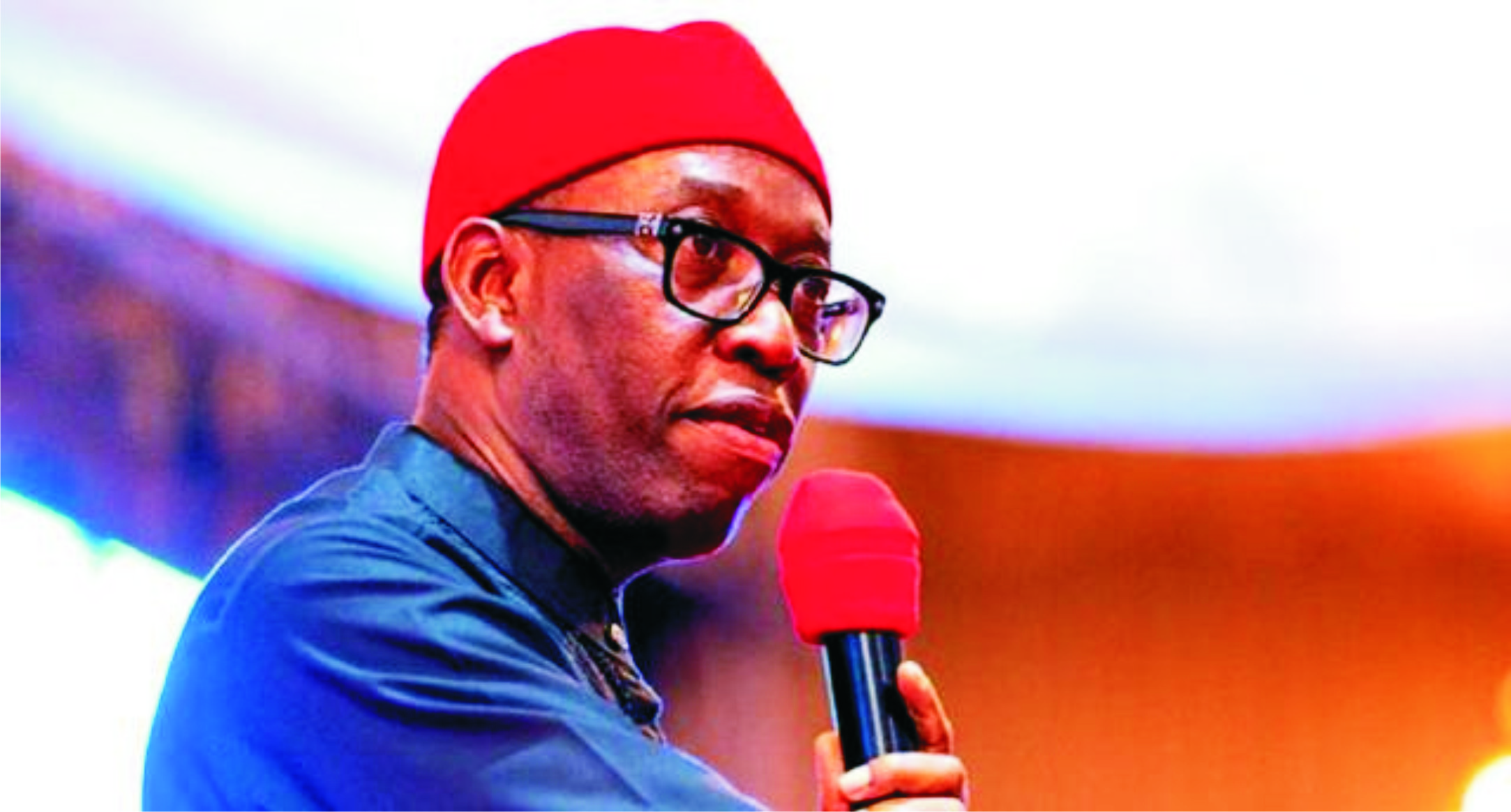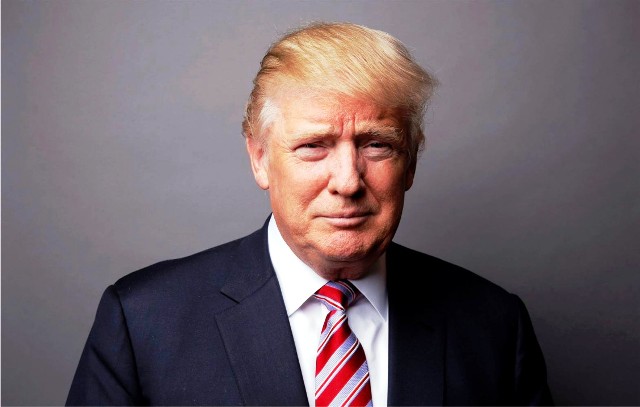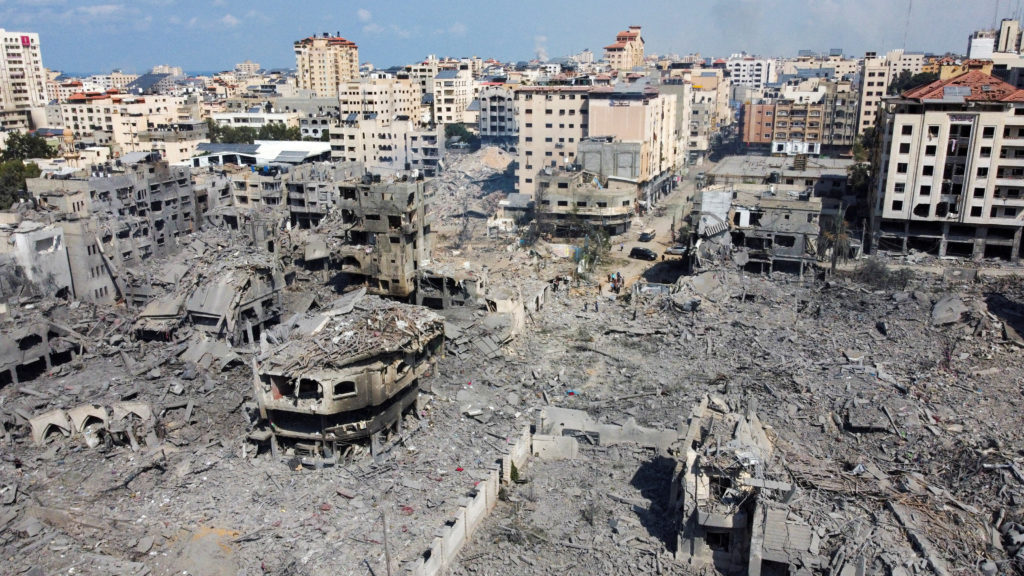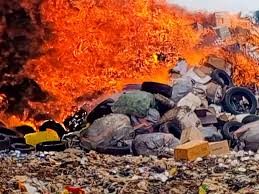Editorial
That S’South Govs’ Asaba Meeting

A couple of weeks ago, the six South-South governors in Nigeria gathered in Asaba, the Delta State capital, under the umbrella of South-South Governors’ Forum. Central to their discussions and decisions were the moribund BRACED Commission and the establishment of a regional security outfit to tackle peculiar challenges in the region.
Speaking at the end of the meeting, the Forum’s Chairman and Governor of Delta State, Dr. Ifeanyi Okowa, said that the governors had agreed to resuscitate the BRACED Commission, which is a regional economic and integration platform. In addition, BRACED, which stands for Bayelsa, Rivers, Akwa/Ibom, Cross River, Edo and Delta, would be mandated to come up with modalities on the establishment of the regional security outfit.
Indeed, The Tide is happy to note that, after years of lull since the formation of the BRACED Commission over 10 years ago and the seeming abandonment of its vision and mission by its founding founders and their successors, current governors in the region appear ready to take up the gauntlet once more. The commission, at inception, was intended to facilitate economic co-operation and developmental strategies within the region. It, however, failed to deliver on its promises after an apparent loud inaugural show, ironically, in the same Asaba, by its founding fathers.
Regrettably, we cannot claim to be ignorant of the foibles that made the BRACED Commission to suffer a stillbirth ab-initio after it was largely seen as a big step in the right direction by member-states.
Now that the incumbent governors have resolved to provide the needed logistics for the Commission to come back to life, we believe that it is a move that should be supported and encouraged by all that have the interest of the region at heart. We believe so because the importance of economic co-operation, unity of purpose and streamlined strategy towards common challenges in the region outweigh individual approach and one dimensional strategy.
Indeed, the South-South region, in spite of being the goose that lays the golden egg for Nigeria, has peculiar problems, ranging from economic, social to political. In fact, the level of lack of development in most communities of the region in the face of its often touted wealth is a paradox of contrasts.
There is no gainsaying that the people of the region have suffered severe deprivations and we think that through the BRACED Commission, provided that the objectives are right, the people can pool resources together and take the region to the next level.
With the Commission given the necessary shot in the arm, it would present the region the platform to articulate common areas of cooperation, tackle issues with one voice and seek to attract attention and development for the region. It must, however, be noted that, for the commission to be viable, efforts must not be spared in providing the logistics it needs to function optimally.
More importantly, the governors should do well to provide the leadership and vision needed by the Commission, while an administrative structure in which all the states would be represented is required for the needed cohesion, vibrancy, unity of purpose and economic empowerment to be engendered.
We think that the Commission should be seen as a serious business platform to advance the interest of the region rather than a mere social meeting or a forum for competition. It is a known fact that the Commission, despite its ideals and promises at formation, suffered setback due to ego problems, personal agenda and political differences among the founding governors. This must not be allowed to play out again. The larger interest of the region is paramount and should be above that of an individual, including any of the governors.
It is time to drive the wheel of development and progress of the region forward and no state in the zone should be left behind.
In addition, we support the Forum’s idea of setting up a security outfit for the region.
Currently on the front burner in the country is the issue of regional and community policing. In fact, the decision of the Forum on this subject matter could not have come at a better time, especially, considering the coming on stream of the South-West security outfit, Amotekun, the prevailing precarious security situation in the country and the peculiar security challenges in the region.
However, the region must not play to the gallery or join the bandwagon for the sake of it. We expect the political leaders to sit back and design a workable security blueprint that will be suitable to the zone. Such blueprint would not only seek to collaborate with the extant security agencies to provide law and order and protect lives and property but to promote a safe environment for business and leisure in the interest of the region’s economy.
Governors in the region are expected to rise above personal disagreements, political differences and ethnic considerations to speak in one voice on this matter. Security is serious business and an efficient and effective outfit is needed in the region to drive safe living and robust economy. If we dilly-dally while other regions secure their frontiers, criminals would naturally seek for a safe haven and would readily take advantage of any porous zone.
Editorial
New Federal Varsity In Ogoni

President Bola Ahmed Tinubu has made history by signing into law a bill that establishes the Federal Univer-
sity of Environment and Technology in Ogoni, Rivers State. This significant occasion marks a bold step forward not only for the Ogoni people but also for the Niger Delta region and Nigeria as a whole. It signifies a commitment to education, environmental sustainability, and technological advancement.
For the Ogonis, who have long been impacted by environmental challenges, the university represents a beacon of hope. It is more than just bricks and mortar; it is a symbol of empowerment and a pathway to a brighter future. This development is akin to a seed, planted with the promise of a flourishing harvest of skilled professionals.
The university’s emphasis on environmental technology is extremely important, especially given Nigeria’s climate crisis. Education plays a crucial role in developing sustainable solutions. The institution will provide students with the necessary skills and knowledge to address the environmental challenges affecting the Niger Delta region and beyond. This will have a momentous impact.
Signing the bill, the President praised the Ogoni people’s resilience and unity. He stressed that the institution would mark a “significant milestone in our national journey towards environment justice, education and sustainable development”. Tinubu said the university is a reaffirmation of his administration’s “unwavering commitment to the people of Ogoni, the Niger Delta and the nation as a whole. For decades, the Ogoni people have been at the forefront of fight for environmental restoration and sustainable development, shaping both national and global conversation of these critical issues.
“By signing this bill into law, we are taking a decisive step towards addressing historical grievances and creating new opportunities for learning, growth and prosperity. The university will serve as a centre of excellence, equipping young Nigerians with the knowledge and skill to tackle present environmental challenges, drive clean energy solutions and contribute to our national sustainable economic development.”
We commend President Tinubu for his visionary decision to establish the much-needed institution aimed at fostering development and progress. This initiative is a testament to his commitment to addressing critical social and economic knots and creating opportunities that will benefit the people. The President has laid a solid foundation for sustainable growth while demonstrating a genuine desire to empower and advance the nation’s collective interests.
In addition to his commendable action, we applaud Tinubu for initiating peace talks to bring stability and reconciliation to the troubled area. The decision to engage in constructive dialogue demonstrates a deep understanding of the relevance of inclusive governance and the role of peace in fostering meaningful development. For decades, Ogoni has endured turmoil and neglect, impeding its potential and the return of oil exploration activities.
By opening the door to peaceful negotiations, the President has made a bold and necessary move towards healing fractured relationships and fostering trust among stakeholders. This initiative holds the promise of ensuring that the voices and needs of the Ogonis are heard and respected. We urge all parties involved to seize this golden opportunity for lasting peace and progress. It is only through unity and mutual respect that the full potential of Ogoni, and by extension the nation, can be realised.
As steps are taken to acknowledge and remediate the damage caused by years of oil exploration and production, the Ogonis must reciprocate Mr. President’s gesture by fostering a climate of equanimity and stability. This will ultimately pave the way for the resumption of oil exploration and production. This is not a call to forget the past, but a pragmatic recognition that meaningful change and sustainable development require a collaborative approach.
The Federal Government has a responsibility to ensure that all academic disciplines offered by the new university are fully accredited to maintain the integrity and quality of the school. Without proper accreditation, the institution risks producing graduates who are ill-equipped to compete in the global workforce or contribute substantially to national development. Accreditation serves as a benchmark that ensures programmes meet academic standards and adhere to best practices across various fields of study.
Staff recruitment should be conducted carefully, as the individuals brought into a team can greatly influence an organisation’s performance, culture, and long-term success. The primary focus of recruitment efforts at the university should be on attracting the best candidates who possess the necessary skills, qualifications, experience, and values. Merit should be the guiding principle in decision-making throughout the hiring process, rather than favouritism or personal bias.
For a nation to thrive in the 21st century, a strong higher education system is not only desirable, but essential. Universities serve as the catalysts for innovation, the breeding grounds for future leaders, and the foundations of a knowledge-based economy. The Federal Government must acknowledge this vital role and take intentional actions to properly fund the university in Ogoni and develop infrastructure to ensure it meets international standards. Neglecting this responsibility would put its future prosperity and global competitiveness at risk.
This institution must not suffer the same fate as other federally-owned universities that have been left to decay. That will be a disservice to its purpose and potential. Many government-owned universities in the country have struggled with dilapidated infrastructure, underfunding, insufficient staffing, and interruptions caused by industrial actions due to unpaid wages or poor working conditions. These challenges have led to declining standards in education, putting both students and staff at a disadvantage. The Ogoni University must not be another victim of this worrying trend.
Editorial
HIV, Transiting From Donor Dependence

The initial announcement by United States President, Donald Trump, to cut funding for international
HIV/AIDS initiatives sent shockwaves through the global health community. In Nigeria, a country facing a significant HIV/AIDS burden, the potential consequences were dire. However, the subsequent waiver granted by the administration has provided a lifeline for the millions of Nigerians who rely on the President’s Emergency Plan for AIDS Relief (PEPFAR) for their treatment and support.
PEPFAR has been an important partner in Nigeria’s fight against HIV/AIDS. Since its inception in 2003, PEPFAR has committed more than $7.8 billion to the country, catering to approximately 90 per cent of HIV treatment requirements. With this funding, Nigeria has been able to enhance its HIV prevention, treatment and support services and has witnessed a reduction in HIV/AIDS deaths.
The waiver granted by the Trump administration guarantees that PEPFAR’s life-saving medicines and medical services will continue to reach the needy. Antiretrovirals (ARVs) are the most common type of medicine used to treat HIV and reduce the virus’ spread. Through the provision of ARVs, PEPFAR helps prevent the spread of HIV and enhances the quality of life of those with the condition.
Although Nigeria was recently exempted from the requirement, the signs are evident: the country has to graduate from dependence on donor funds for its HIV/AIDS control programmes. Over the years, partners including the U.S. government have been central to the provision of treatment to people living with the virus. However, it is time for Nigeria to own its national response to HIV/AIDS.
Nigeria’s HIV/AIDS burden remains critical, accounting for 10 per cent of the global total. In 2023 alone, there were 75,000 new infections and 45,000 HIV-related deaths. The battle against Mother-to-Child Transmission remains challenging, with only 35 per cent of the target 75 per cent being met. Nearly 1.7 million Nigerian children have been orphaned due to HIV. Vulnerable populations, especially women and children, continue to disproportionately suffer.
To transition away from donor dependence, a multifaceted approach is necessary. Firstly, the country must increase its domestic financing for HIV/AIDS programmes. This can be accomplished through innovative funding mechanisms, such as leveraging public-private partnerships and exploring local revenue sources. Secondly, the government needs to strengthen its healthcare system to ensure equitable access to testing, treatment, and care. This involves expanding access to antiretroviral drugs, investing in community-based models, and addressing the stigma associated with HIV.
Thirdly, Nigeria must prioritise prevention efforts. This entails promoting condom use, providing comprehensive sexual education, and increasing awareness about the risks and modes of transmission. By focusing on prevention, the country can decrease the incidence of HIV infections and ultimately lessen the burden on its healthcare system.
Finally, Nigeria should develop a sustainable human resource strategy for its HIV/AIDS response. This involves training and equipping healthcare workers, engaging community volunteers, and empowering people living with HIV to advocate for their rights. A well-trained workforce is essential for delivering high-quality services and ensuring the long-term success of the response.
The transition beyond donor dependence is a complex but necessary journey for the country. By increasing domestic financing, strengthening healthcare systems, prioritising prevention, and investing in its human resources, the country can create a sustainable and effective response to HIV/AIDS. Also, the government should consider alternative funding mechanisms, such as increased domestic funding, public-private partnerships, and philanthropic initiatives. The time to act is now, for the well-being of present and future generations.
Nigeria’s National Agency for the Control of AIDS (NACA) has made momentous strides in combating HIV/AIDS, including expanding access to testing, treatment, and education. However, challenges persist, hindering the effectiveness of these efforts.
One major obstacle is limited access to healthcare facilities, particularly in rural areas. This impedes timely diagnosis and treatment, reducing the likelihood of optimal outcomes for those living with HIV. Additionally, stigma surrounding the disease remains a formidable barrier, preventing individuals from seeking testing and care. Inadequate awareness campaigns further contribute to low testing rates and delayed diagnosis.
Addressing these challenges requires concerted action by the government and stakeholders. Allocation of adequate funding is crucial to expand healthcare infrastructure and ensure the availability of essential services. Moreover, targeted interventions to reduce stigma and promote awareness are vital for increasing testing and early detection.
Collaboration between civil society organisations and grassroots movements is also essential for advocating for protection of HIV funding. Advocacy campaigns can mobilise public support and pressure lawmakers to prioritise the fight against HIV/AIDS. By addressing these challenges and ensuring sustainable funding, Nigeria can depend less on donor countries, drastically reduce HIV transmission, and provide the necessary care to those affected by the disease.
Editorial
Israel-Gaza War: Sustaining The Ceasefire

-

 Sports2 days ago
Sports2 days agoA’ Ibom’s Ready To Host Niger Delta Sports Festival-Eno
-

 Oil & Energy2 days ago
Oil & Energy2 days agoNNPC Debunks Explosion Claim In Warri Refinery
-

 Rivers2 days ago
Rivers2 days agoNAFDAC Destroys N4.7bn Worth Expired, Substandard Products In Rivers
-

 Sports2 days ago
Sports2 days agoCity’s January Spending Propelled By Fears Of Transfer Ban?
-

 News2 days ago
News2 days agoAccess CALM Fund To Convert Vehicles To CNG, FG Urges Nigerians
-

 Politics2 days ago
Politics2 days agoLG Autonomy: NBA To Host Talks On S’Court Verdict Implementation
-
Education2 days ago
Council Boss Charges Corps Members To Promote Peace
-

 Sports2 days ago
Sports2 days agoLASG Tasks Officials, Athletes On Maintenance Of Upgraded Sports Facilities

